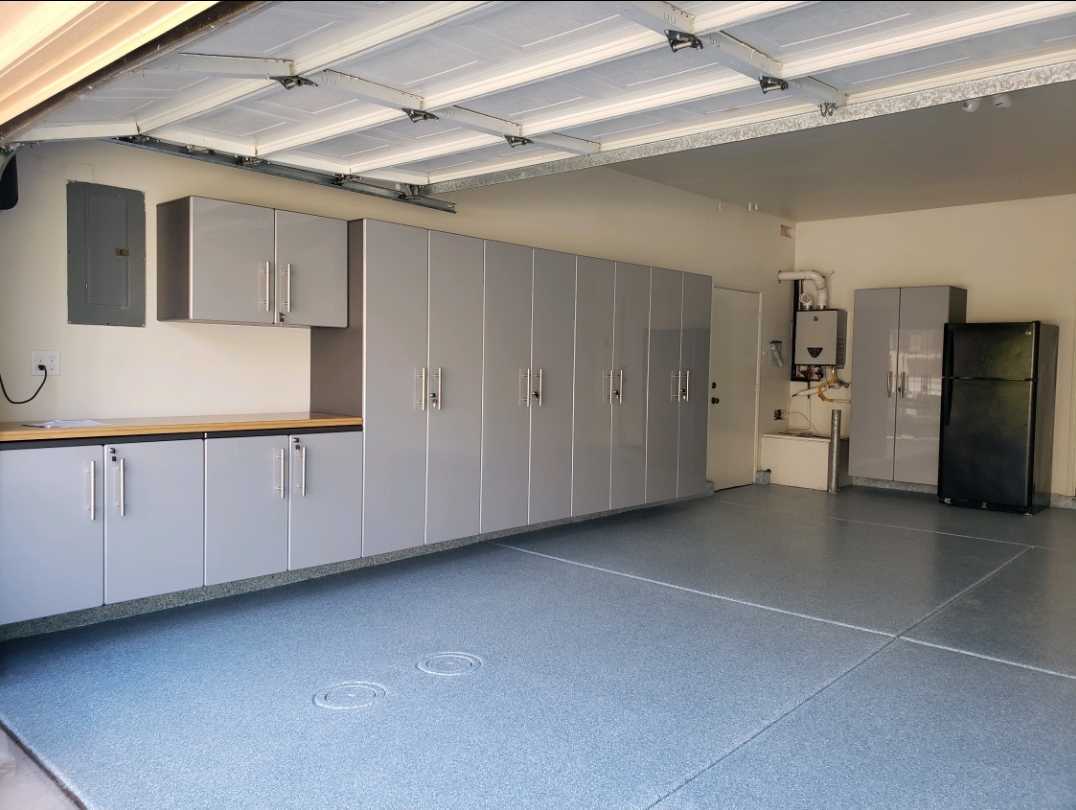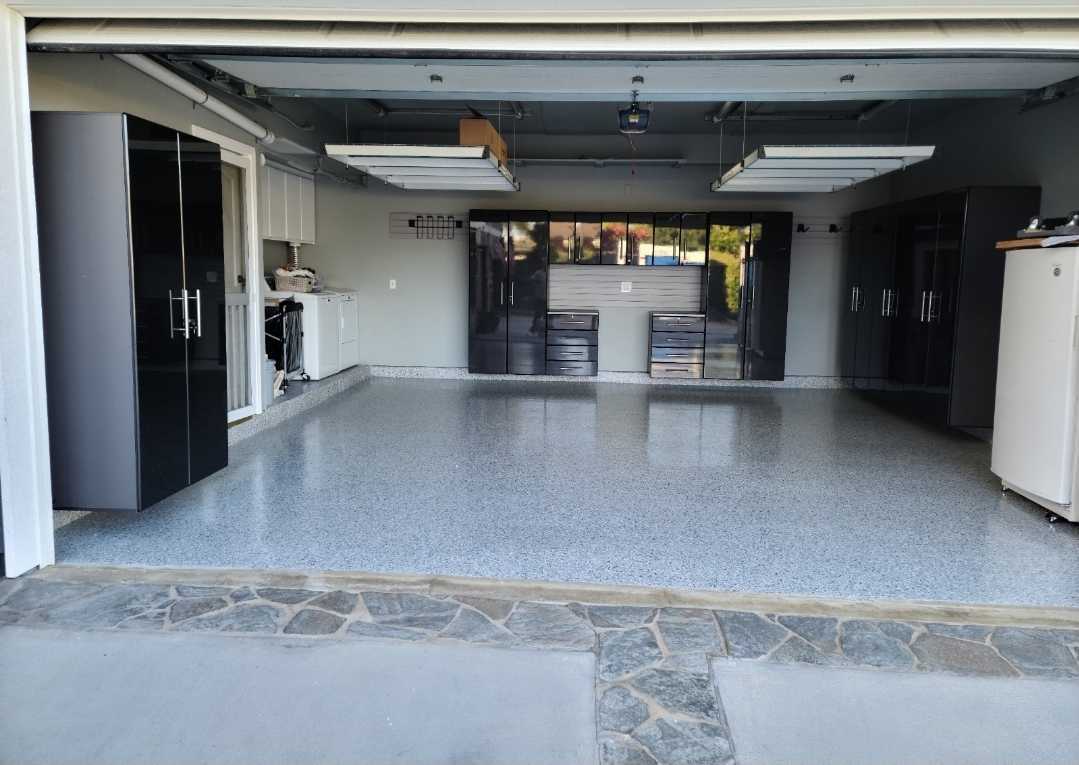
How To Maintain, Improve & Increase The Lifespan Of Your Garage Floor
Sealing concrete garage floors are a significant investment into both the value and the functionality of your garage. Over time, garage floors become vulnerable to moisture that seeps up through the ground and also to rain, puddles, spills, and other sources of moisture from above. The best way to maintain the life and performance of your garage floor is with a concrete floor coating. There are several types of garage floor coatings. All of them improve the overall performance of your garage floor by strengthening it, preserving it from water damage, and protecting it from road salt, extreme temperatures, and other elements.
Concrete Sealers Prevent Floor Cracks
You may be surprised to learn that concrete is porous. Over time, oils, gas and other automotive fluids, and water seep deep into the pores of your concrete floor, weakening them and leaving them vulnerable to cracks. Some types of concrete sealers penetrate deep into the concrete floor, preventing liquids and debris from entering the pores. Floor coating helps protect the concrete from damage from above, reducing the risk of cracks, abrasions, chips, and other unsightly marks.
Save Money On Replacing Your Damaged Concrete Floor
Concrete floor coatings strengthen garage floors. This means they will last much longer and will not be as vulnerable to damage. When you get consistent performance from your sealed concrete garage floor for many years, you may not notice this benefit. However, when you talk with a neighbor or friend about their garage floors and ask about the cracking, repairs, and maintenance they need to pay for – you’ll quickly see that your floor coatings were a smart investment that saved money in the long run. Plus, you’ll save yourself the hassle of a floor that is damaged or in need of repair.
Sealed Concrete Floors Are Easier To Clean
Unsealed garage floors need careful cleaning and maintenance to keep liquids out of pores and to keep them from becoming slippery. Once oil and other debris has made its way into the floor, it can be very difficult to get the floor clean and to keep it looking clean. Abrasive cleaners and hours of scrubbing may help some, but will ultimately weaken and damage the floor. In contrast, sealed garage floors are much easier to clean. If you get a spill, simply wipe it up with a towel or mop. You will seldom need to use more than soap and water – no elbow grease or harsh cleaners needed!
Types Of Garage Floor Sealers
There are several different types of garage floor sealants. All concrete floor coatings are technically types of sealants. Some sealants are better for specific climates or applications, so it’s helpful to learn about the different kinds and discuss the best options with a professional before you choose.
Epoxy Floor Coatings

Epoxy is the most popular type of garage floor coating, and with good reason. The chemicals used in the epoxy create a dense cross linking adhesion. This makes for a very thick and very durable coating. Epoxy is an excellent choice for homes or businesses with heavy traffic because it is so durable and resistant to abrasions. Since it is water resistant, messes are easily wiped up with mild soap and water. Homeowners love that epoxy floor coatings do not absorb oils, road salt, rain water, or automotive fluids. Epoxy is available in many colors and finishes, allowing you to choose from a wide variety of looks and styles for your garage. Since it has a tendency to be slippery, adding traction material is usually recommended. A good quality epoxy will last for many years.
Polyurethane Concrete Sealer
Polyurethane is even more durable than epoxy. It is available in several different finishes and colors, including glossy and matte. Since it does not bond well to bare concrete, a primer such as epoxy is used underneath. Because of this, and because it doesn’t turn yellow in sunlight like epoxy does, polyurethane is a popular finish option over epoxy floors. It can be a good option for a garage floor that may be exposed to sunlight or for someone who wants a non-glossy finish. With a anti-slip agent, polyurethane makes an excellent top coat.
Polyaspartic Garage Floor Coating
A newer type of garage floor coating, polyaspartic coating is actually a subtype of polyurethane and comes in finishes similar to epoxy and polyurethane coated floors and has many of the same benefits. Unlike epoxy and polyurethane, polyaspartic coatings have the advantage of being able to be applied in extreme temperatures, ranging from below freezing to over 100 degrees. They are especially popular for businesses because they set extremely quickly, meaning that the floor is ready to be used the day after application.
Acrylic Concrete Sealers
Acrylic sealers can be applied directly to bare concrete and are easy to apply. Usually, two coats are used. Acrylic sealers will provide moderate protection against water, fluids, and stains, but will need to be cleaned up faster than they would need on other types of sealed floors. Like other concrete sealants, acrylic sealers enhance the look of your garage by giving it a glossy or matte finish. You’ll be able to use the floor within several hours to a day after application.
If Garage Floor Coatings Aren’t Right For You, Staining Your Concrete Is An Option
If garage floor coatings aren’t what you need, consider stained concrete. Floors can be stained in many colors and finishes and look beautiful in commercial spaces, restaurants, shops, personal garages, and anywhere in your home. Stained concrete floors are easier to clean than regular concrete. The stain helps protect against damage from foot traffic, machinery, and chemicals while also being unique and attractive. You can also visit Designing & Building Garage Cabinets vs. Kitchen Cabinets.
This blog post is courtesy of Barefoot Surfaces, owned and operated by concrete sealing contractor, Ric Ramirez.
